Publications
Articles, publications, books, tools and multimedia features from the U.S. Institute of Peace provide the latest news, analysis, research findings, practitioner guides and reports, all related to the conflict zones and issues that are at the center of the Institute’s work to prevent and reduce violent conflict.
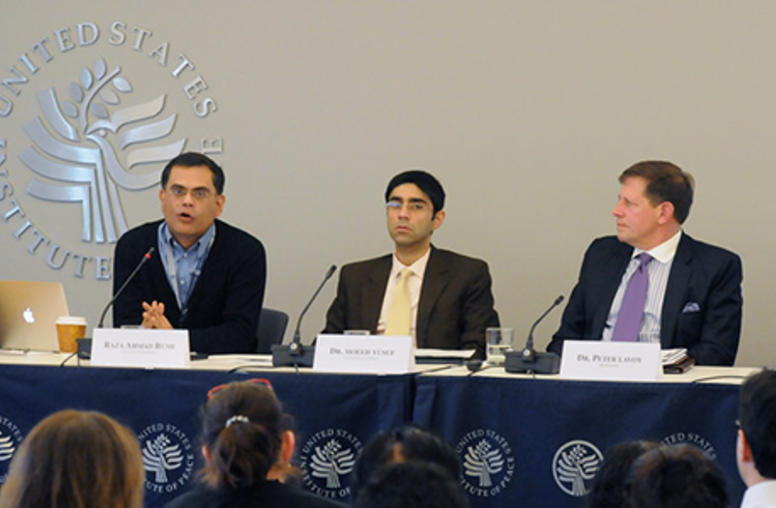
Pakistan Massacre of Schoolchildren: What Has It Changed?
Even having lost 50,000 people killed in terrorism-related violence over more than a decade, Pakistan was stunned by the Taliban massacre of 145 schoolchildren and others at an Army school in Peshawar on December 16, 2014. With some commentators calling the event “Pakistan’s September 11,” the U.S. Institute of Peace convened experts to assess whether the country may actually have reached a decision point that could yield a more consistent and effective state campaign against terrorism.
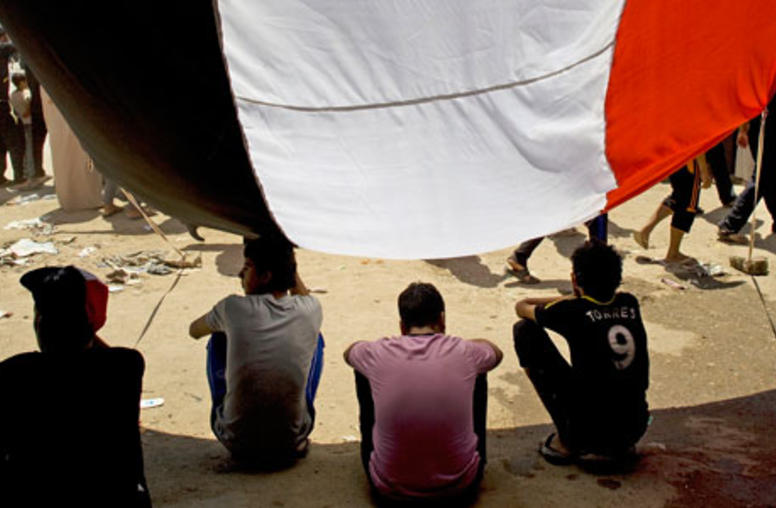
USIP Update from Baghdad
A senior USIP team from Washington, D.C. and Baghdad in late June met with male and female Iraqi leaders from across the country's diverse political spectrum as well as with Iraqi youth, civil society and representatives of vulnerable minority groups. USIP’s Sean Kane reports from Baghdad on some of the main themes on the issues of the day which emerged from USIP’s conversations with a cross section of Iraqi leaders.
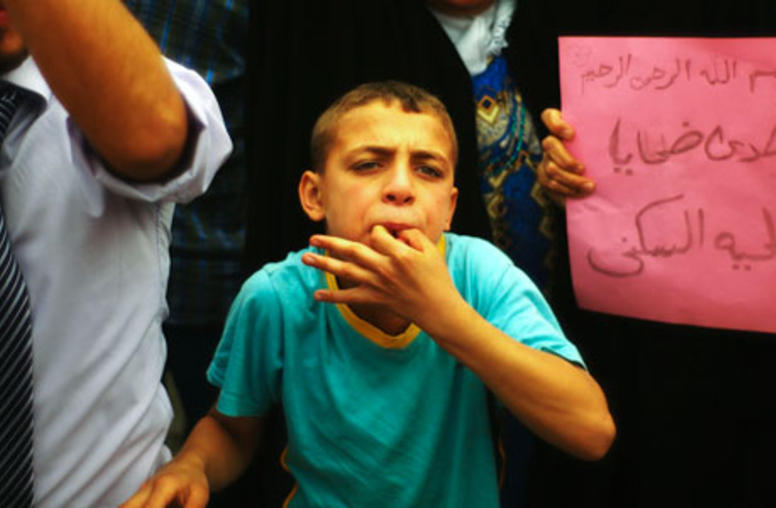
Youth and the "Arab Spring"
USIP’s Stephanie Schwartz, author of “Youth and Post-Conflict Reconstruction: Agents of Change,” discusses the critical role youth are playing in the “Arab Spring.”
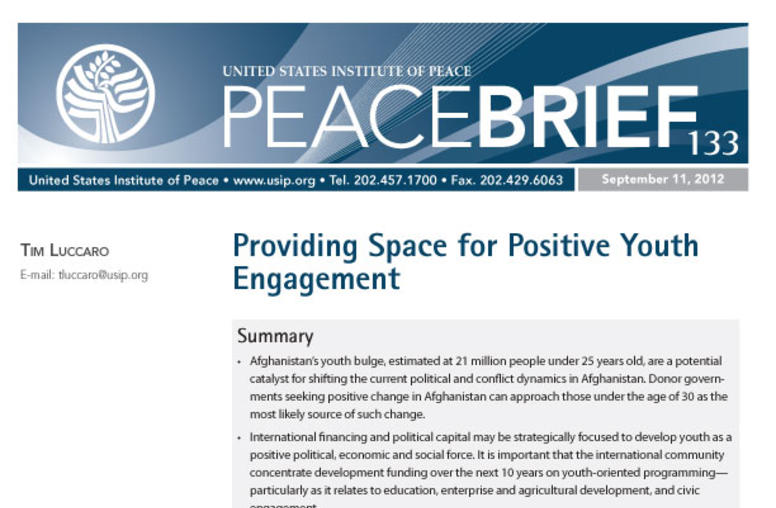
Providing Space for Positive Youth Engagement
Tim Luccaro, USIP’s program officer in Kabul, discusses USIP’s work with Afghan youth volunteers to build greater community awareness of civic and legal rights, highlighting the need for greater recognition of Afghan youth’s role and participation in political and peace processes in Afghanistan.
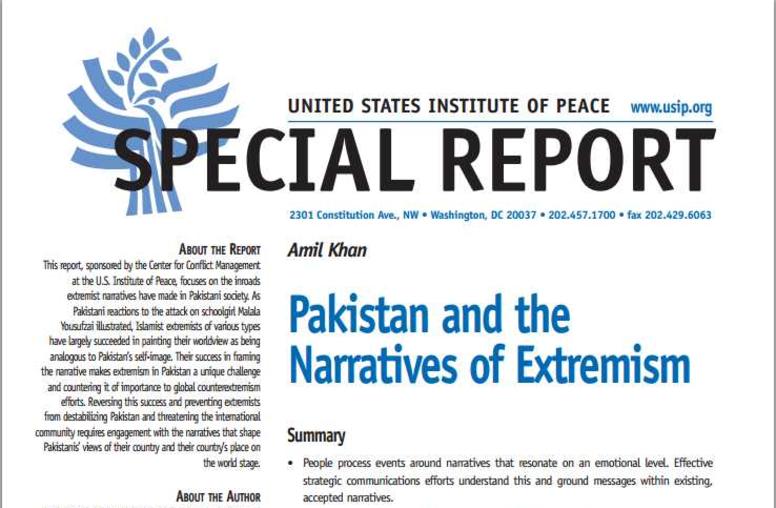
Pakistan and the Narratives of Extremism
Violent extremist organizations in Pakistan have effectively drawn on existing narratives about Pakistan’s history and identity in promoting their own worldviews. An effective communications strategy to counter extremism likewise needs to engage existing narratives, as well as engaging youth and others who are already challenging extremist views.
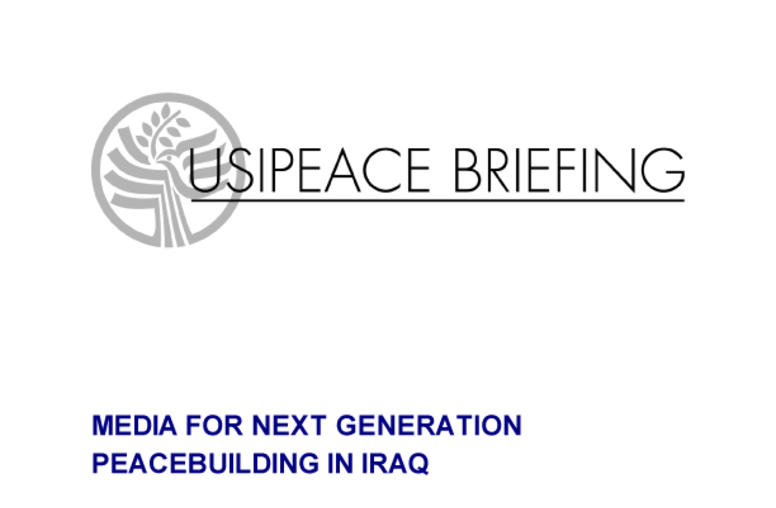
Media for Next Generation Peacebuilding in Iraq
In order to address some of the challenges facing youth in Iraq, USIP and its Iraqi partners created a multimedia program that provides Iraqi teenagers with tools that can help them grow into independent, empowered citizens within a complex society. In April 2009, USIP’s Center of Innovation for Media, Conflict and Peacebuilding organized an expert working group in Erbil, Iraq to discuss various peace media programming relevant for Iraqi youths. This report offers an introduction to USIP’s yo...
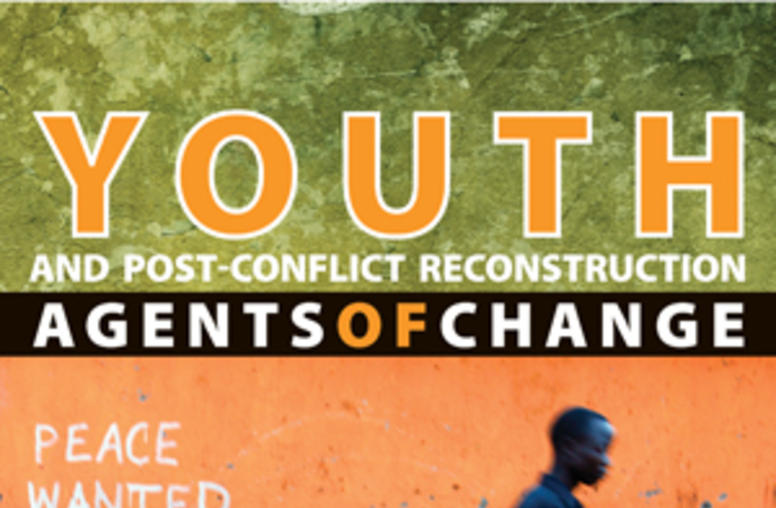
Youth and Post-Conflict Reconstruction
In conflict and post-conflict situations, youth constitute a reservoir of energy. Some young people choose to fight or are forced into a life of violence. Others are able to work to improve their communities, contribute to peacebuilding, reconciliation and reconstruction, and become invested in their countries’ future peace. Youth and Post-Conflict Reconstruction: Agents of Change uses three cases of post-conflict reconstruction—Mozambique, the Democratic Republic of the Congo, and Kosovo—...
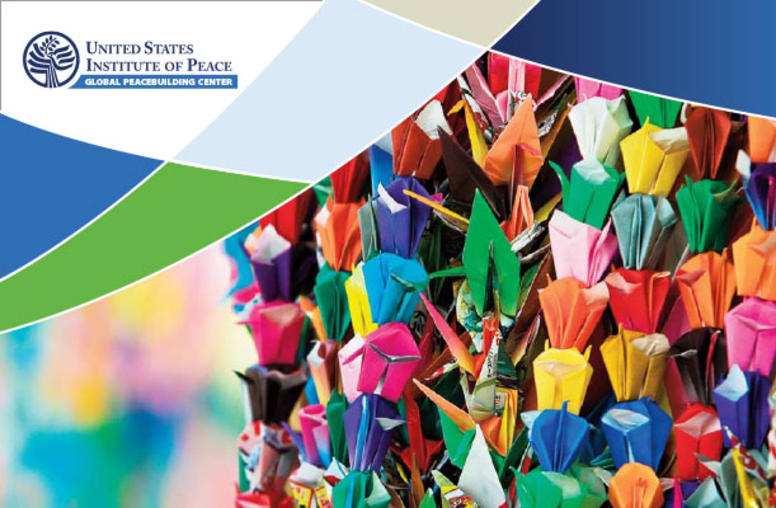
Peacebuilding Toolkit for Educators - Middle School Edition
This Peacebuilding Toolkit for Educators is designed to support the work of educators as peacebuilders. We believe that young people have tremendous capacity, as individuals and as a community, to learn about and contribute to international conflict management, and that educators can channel students’ energy and enthusiasm in positive ways.

Peacebuilding Toolkit for Educators - High School Edition
This Peacebuilding Toolkit for Educators is designed to support the work of educators as peacebuilders. We believe that young people have tremendous capacity, as individuals and as a community, to learn about and contribute to international conflict management, and that educators can channel students’ energy and enthusiasm in positive ways.
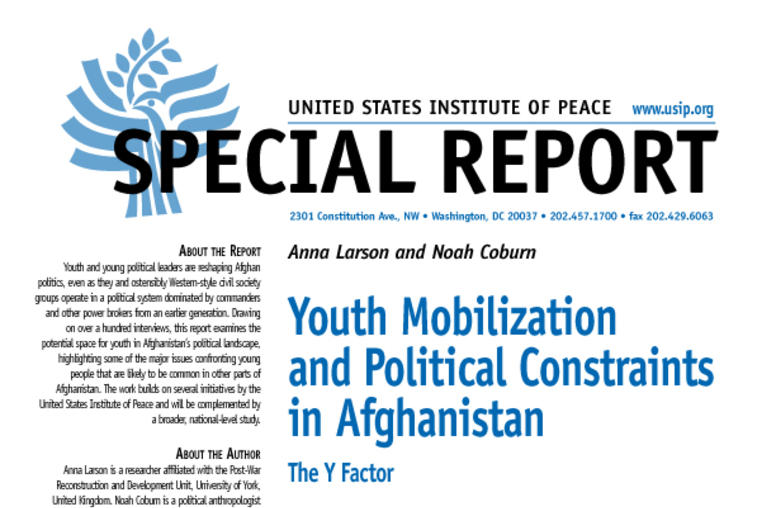
Youth Mobilization and Political Constraints in Afghanistan
As Afghanistan’s youth population grows, so do youth aspirations for political reform and access to economic resources. Yet old-guard leadership marginalizes new groups and challenges to the status quo. This study of youth in two districts and at Kabul University finds that increased political activism by youth is not translating to more effectiveness in reforming the patronage networks that dominate the Afghan political system. Youth organizations that appear apolitical, such as sports clubs...